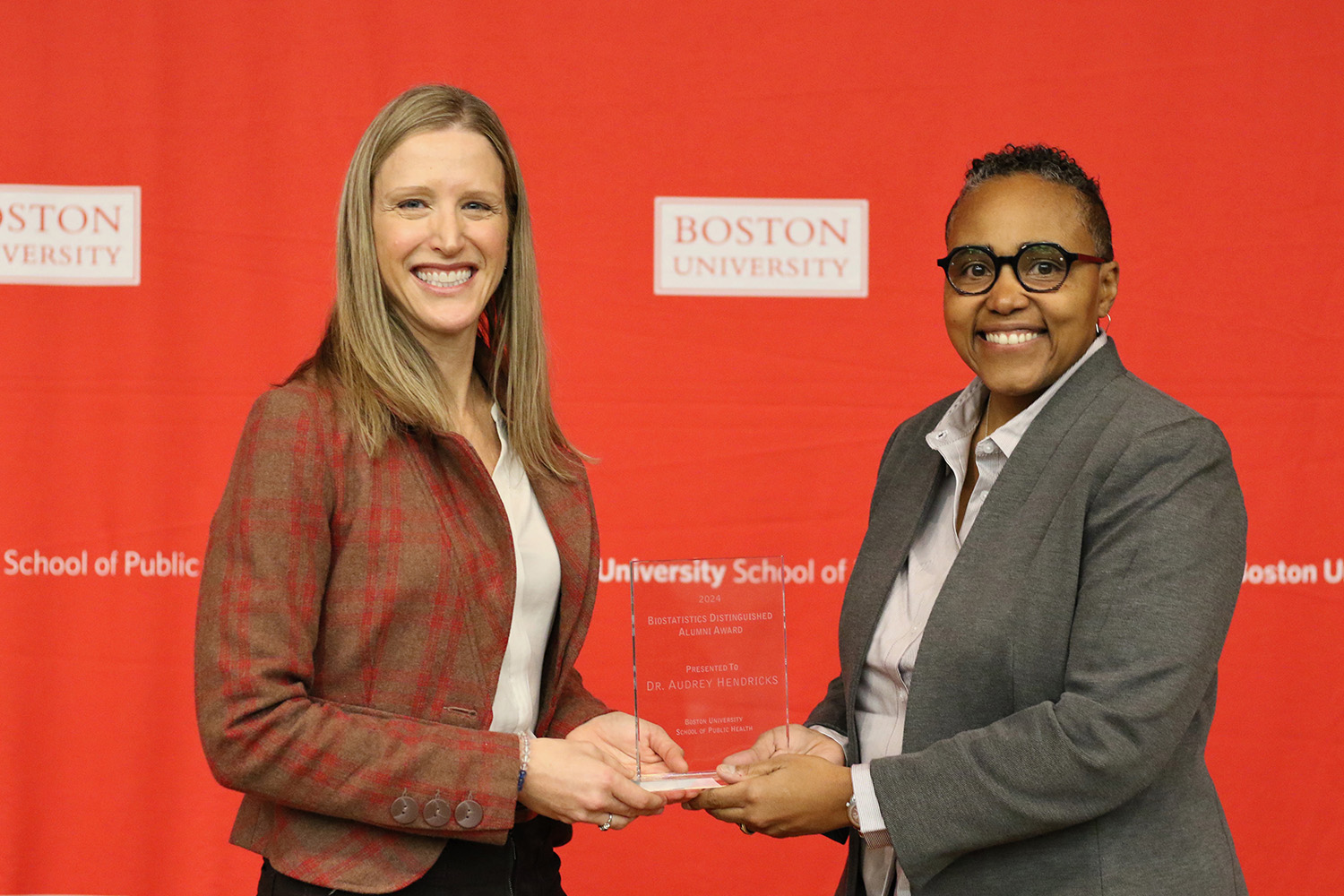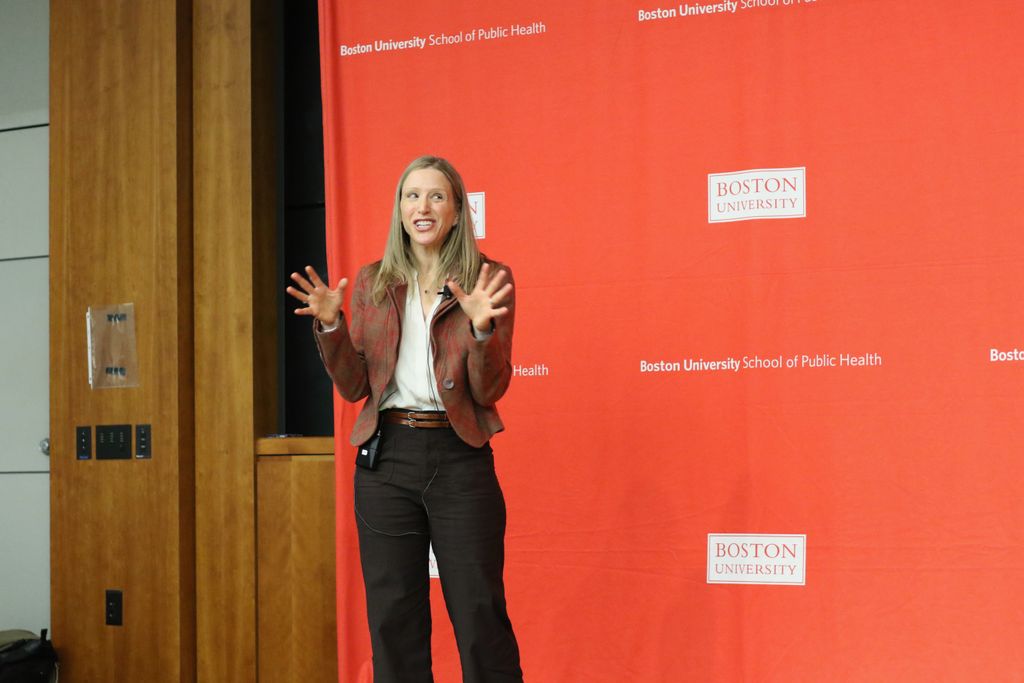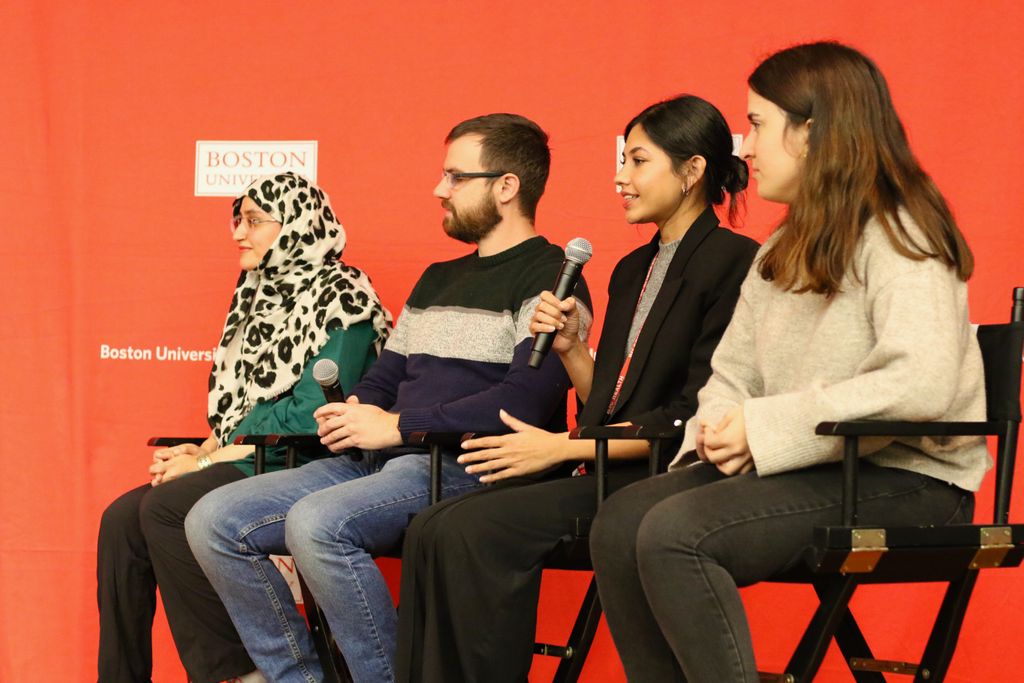Audrey Hendricks Receives 2024 Biostatistics Distinguished Alumni Award.

Photo by Megan Jones
Audrey Hendricks Receives 2024 Biostatistics Distinguished Alumni Award
Hendricks (SPH’11), whose research bridges biomedical science and statistical machine learning, is on a mission to advance inclusion in the sciences, from who joins the field to what questions are asked and for whom.
The Department of Biostatistics at the School of Public Health has named Audrey Hendricks (SPH’11) the recipient of the 2024 Biostatistics Distinguished Alumni Award. Hendricks, an associate professor of statistics in the Department of Biomedical Informatics at the University of Colorado Anschutz, accepted the award and gave a presentation on lessons from her career at SPH on November 15.
The annual award recognizes an alum from any graduate-level biostatistics program at Boston University whose career embodies SPH’s core purpose to “Think. Teach. Do. For the health of all.” This includes notable contributions to the field, such as publishing peer-reviewed articles, teaching and mentoring the next generation of biostatisticians, and doing work that impacts underserved populations.
“She exemplifies the ethos of ‘Think. Teach. Do. For the health of all.’ making substantial and sustained contributions across these domains. Her achievements and unwavering dedication make her an outstanding candidate for BU’s Biostatistics Distinguished Alumni Award,” reads an excerpt from Hendricks’ nominations package.

Scarlett Bellamy, professor of biostatistics and chair of the biostatistics department at SPH, shared the quote with the audience of SPH faculty, staff and students who gathered to hear Hendricks’ remarks and participate in a student-led Q&A. Hendricks, who was both a master’s student in the biostatistics program at BU and a PhD student in the Department of Biostatistics at SPH, said she was honored to be back at her alma mater, noting, “I see a lot of a lot of familiar faces and some new ones as well.”
After defending her PhD and giving birth to her first child, Hendricks and her family moved to Cambridge—”the one across the pond, not the river,” she joked—so she could undertake a two-year post-doctoral fellowship at the Wellcome Sanger Institute, one of the world’s leading genomics research institutes where sequencing of the genes of over 10,000 individuals was underway at the time. Hendricks lived and worked in Cambridge for a year before her young family’s childcare needs compelled them to return to the U.S. Back in Boston, Hendricks completed the fellowship remotely while simultaneously taking advantage of an opportunity to serve as a visiting post-doc at the Broad Institute of MIT and Harvard.

In 2013, the Department of Mathematical and Statistical Sciences at UC Denver offered Hendricks, then seven months pregnant, her first faculty position. She accepted, settling her family in her home state of Colorado, not far from where she studied physics and music as an undergraduate at UC Boulder. In the ensuing years, Hendricks has picked up additional appointments in the Department of Biostatistics and Informatics and at UC Anschutz and built a robust multidisciplinary research team to apply statistical machine learning methods to advance genetic data analysis, elucidate healthy diet mechanisms, and understand the genomic underpinnings of traits.
Throughout, Hendricks has maintained an ongoing commitment to diversity and inclusion in science through the mentorship of a more representative pool of future statisticians and critical thinkers. In addition to mentoring the professional and student research assistants in her own lab, Hendricks co-directs two formal training programs offered by UC Anschutz and UC Denver, the Pathways in Genomic Data Science and the Pathways in Genomic Research Experiences for Undergraduates.
